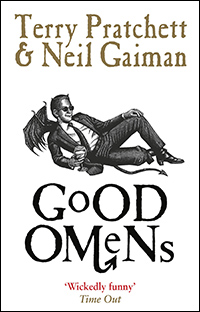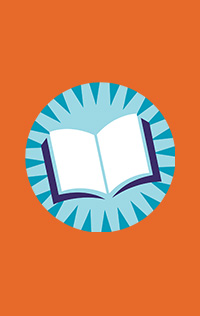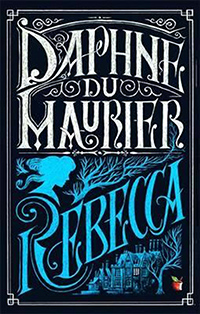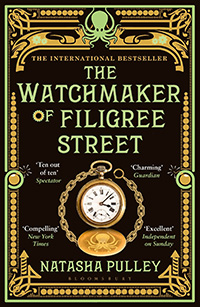Discover more book recommendations
Meet our Book Doctor... Natasha Pulley, author of The Watchmaker of Filigree Street
In our Book Doctor feature, we welcome a guest to prescribe just the right read for any mood or occasion.
Natasha Pulley, author of The Watchmaker of Filigree Street, has joined us to prescribe some fantastic books and reading advice.
I love reading but have struggled to find time, what with young children and work. I like my fantasy stories but lots are now these multi-book epics. Do you have any recommendations for short fantasy series or even one-off books? I like Kristen Brittain, Patrick Rothfuss, and Trudi Canavan. Many thanks! – Julia, age 37
If you haven't already, it's really worth trying Neil Gaiman. His books are almost always standalone, and he has one of the most brilliant fantasy imaginations I've ever come across. His books are very funny too. A lovely introduction to him – and to Terry Pratchett, who also tended to write a lot of linked standalones – is Good Omens, which is about an angel and demon who sort of screw up the apocalypse. My other favourite and much underrated fantasy writer is James Brogden, who writes standalones. One of his best is Hekla's Children. If you'd like to try some eerie, extremely clever fairytales, you could look at Zoe Gilbert's Folk.

How do I get my children (aged 12 & 14) to read classics? Both are avid readers but they mostly stick to their favourite genres and refuse to read olden-day books. I would like them to read a few more classics as I feel they are missing out. – Shehar
This is such a fantastic sentiment – but I would say, be patient. You don't need to rush kids into reading classics, especially if the classics you have in mind are from any earlier than 1900, where there's a big language and culture difference between the time of the writer and today. I actually regretted reading a lot of classics in my teens, because although my reading comprehension was fine, I just didn’t have the emotional scope yet to understand why the stories were good. I read all of Austen and thought all the characters were idiots, and I read Jane Eyre without understanding that Mr Rochester is hysterically funny; and it was only when I read them again in my late twenties that I realized just how much I’d missed. While it is of course crucial to boost children's reading ability, I think it's OK for them to leave older stuff until a little later. The main thing is that they keep reading – and at this stage, I don’t think there's any harm at all in just letting them read what they like. They'll branch out on their own soon, and then you’ll be trying to pry the Marquis de Sade off them and ruing the day you taught them the alphabet.

I feel guilty for enjoying good old rom com or romantic books when I should be reading highbrow books. Can you recommend any happy mediums where I can be proud of my romantic book choice and recommend to others?! – Kate
Please never, ever, be ashamed of what you’re reading! Reading is about joy and escape and comfort; the notion that you should be academically edified by reading can steal away all the pleasure from it – and honestly, anyone who insists they only read 'highbrow' books probably ought to be strapped to a rocket and fired into space. But that said, some of the best books of all time are romances. If you haven't already, try Rebecca by Daphne du Maurier; it’s eerie and brilliant, but the central relationship between the narrator and her strange, haunted husband is hugely compelling. If you'd like to try some historical fiction, you could definitely look at Madeline Miller's The Song of Achilles too, which is an award-winning book by a heavyweight scholar. It's the story of one of the oldest romances in written history.

There's so many good books out there, it's overwhelming. How do I prioritise what to read first? – Iona, age 22
This is something I really struggle with too. One of the things I find especially difficult lately is buying books online: you’re constantly exposed to bestseller charts, reviews, star ratings – all other people's opinions. This can drown out the most important thing: what you feel like you want to read. Try getting to libraries and bookshops (when they open again, which is blessedly soon). That way, it's just you and the books. There won't be a thousand virtual voices trying to tell you what’s best. It also means that you're not being shown books according to algorithms that take into account what you’ve already read: that can be great, but if you're looking for something new, it can get in your way. If you don't know what you want, some shops do book blind dates; you buy a book wrapped up in brown paper and a tag that gives you a couple of hints, and you don't know what it is until you get it home. This, I believe, is the stuff of genius.

How do I get over a "book hangover", the feeling of still being lost in the world of the last book you read and can't get into a new one? – Audrey
Book hangovers are rare and precious things: here's a book that's reached you so well that it changed you. It's absolutely fine to sit with that for a little while. You don't have to power straight on to the next thing. You could even try doing some writing. A book hangover is one of the strongest sparks for making a story of your own; whether that’s fan-fiction if you’re just starting out and you need to lean on ready-made places and characters, or an idea wholly yours if you don’t need those stabilisers any more. It's a lovely way of exploring why that book got to you so much, as well as living in it for a little longer.


About The Watchmaker of Filigree Street by Natasha Pulley
1883. Thaniel Steepleton returns home to his tiny London apartment to find a gold pocket watch on his pillow. Six months later, the mysterious timepiece saves his life, drawing him away from a blast that destroys Scotland Yard. At last, he goes in search of its maker, Keita Mori, a kind, lonely immigrant from Japan. Although Mori seems harmless, a chain of unexplainable events soon suggests he must be hiding something. When Grace Carrow, an Oxford physicist, unwittingly interferes, Thaniel is torn between opposing loyalties.
The Watchmaker of Filigree Street is a sweeping, atmospheric narrative that takes the reader on an unexpected journey through Victorian London, Japan as its civil war crumbles long-standing traditions, and beyond. Blending historical events with dazzling flights of fancy, it opens doors to a strange and magical past.